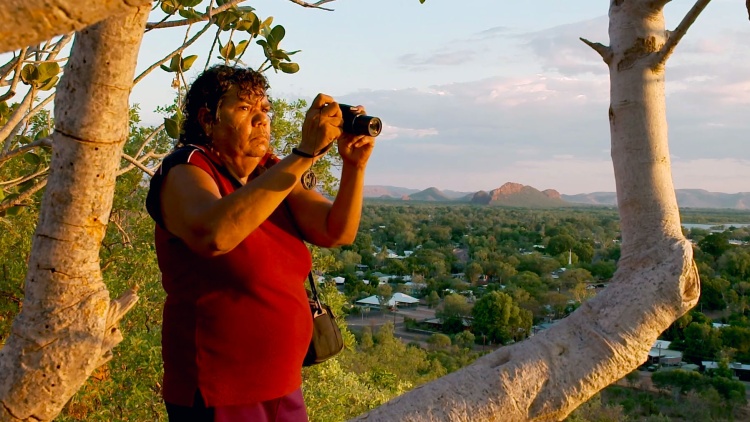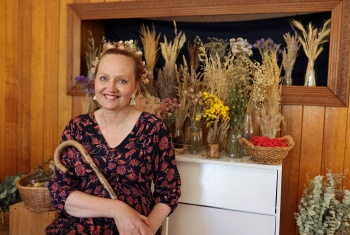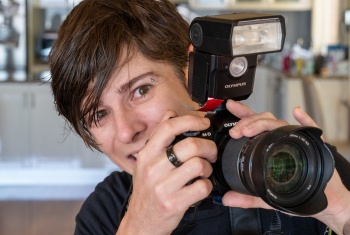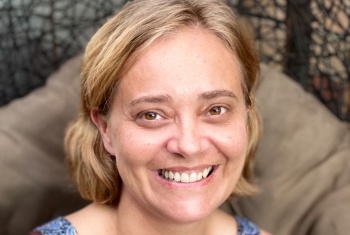Living with a significant mental health disability has taken Mary Anne Beebe to dark places she never imagined.
“I ended up in Graylands twice, a mental institution in Perth,” Mary Anne says. “And I thought, oh God, what do I do in a mental institution, you know? I’m in a mental institution, that’s not for me!”
After experiencing a ‘breakdown’ at 27, Mary Anne found herself in deep despair and far from her people in Miriwoong country, in the East Kimberley of Western Australia.
But today, the proud Jaru woman is happy and living on her family’s property in the remote town of Kununurra where she first moved as a child.
Mary Anne, now 55, says she’s feeling healthier, stronger, and more confident than ever before.
Thanks to her positive mindset and specialised supports through the NDIS and local NDIS provider, Patches, Mary Anne has increased her independence and is enjoying life as she always hoped it would be.
She’s working, supporting family and community, and sees herself as a role model to others.
“I always have a goal all the time from the word go, since I was a little kid,” Mary Anne says. “And don’t ever put a failure on it, just put a success on it and that’s a good thing to have.”
“The support I’ve been getting with the NDIS is just awesome.
"The good thing about it is I feel like I’m independent.”
Mary Anne has been pursuing a passion for photography.
After Patches helped connect her with Kimberley’s Small Business Support, Mary Anne discovered photography could help her – both on her journey to improved mental health, and as a pathway to create her own business.
“When they got me involved in photography, I didn’t think I could do it, I didn’t even dream of photography,” Mary Anne says. “But after one photo led to another photo and it just kept going.
“Your mind is too much to control and photography for someone with a mental health problem is so easy because you get satisfaction, so that’s the good thing about it.
There are so many projects I like to do that, with photography, I can reach it.”
Mary Anne has turned her eye for spectacular sunsets, magnificent landscapes, and the Kimberley’s diverse flora and fauna into a rewarding small enterprise, Beebe’s Photos.
Every week, she engages with locals and tourists, selling original photographs and prints at the Kununurra Markets.
She has self-published a book and markets her work through social media.
“When you look at that book, when you do a book on it, it just shocks you, you know, where the journey has been,” she says.
Mary Anne heads out regularly on country with support workers to capture her unique images.
“This weekend past, when we went out to Keep River on the border edge of the Kimberley and Northern Territory, and everything just came alive, the hawks, the birds, the crocodiles, the river, the fish – the fish started jumping out of the river!
“I told Marie, ‘thank you for taking me’, because all of a sudden everything just came up large and you just see what it is. It helps my mental health because I’ve learned to trust myself.”
As well as building her own business, Mary Anne is also using her skills to teach and support others in her community, including her sister Margaret who is now selling her artwork alongside Mary Anne’s photos at the markets.
“I like to help others, you know. I have a dream that Beebe’s Photos could be a company one day and I’d love to give young people a job,” she says.
“I’m just thinking to open up a little shop at our property and give one or two people a job.”
Mary Anne’s NDIS plan also includes psychology supports to help keep her mental health on track. She admits when she first joined the Scheme, she was anxious about how it would work for her.
“When I started up NDIS, I said, ‘Can I do this? Can I do this? Is it possible?’ – you know?
“But NDIS gives you a support worker and they’re really good because they take you everywhere, they give you that extra mile and I’m glad NDIS come on board.
“They’re always there and can say ‘Hi’ to me and ‘How you going?’, just lift you up. If something fails, you know you can go back to the NDIS and say, ‘Hey, you know, give me direction.’”



